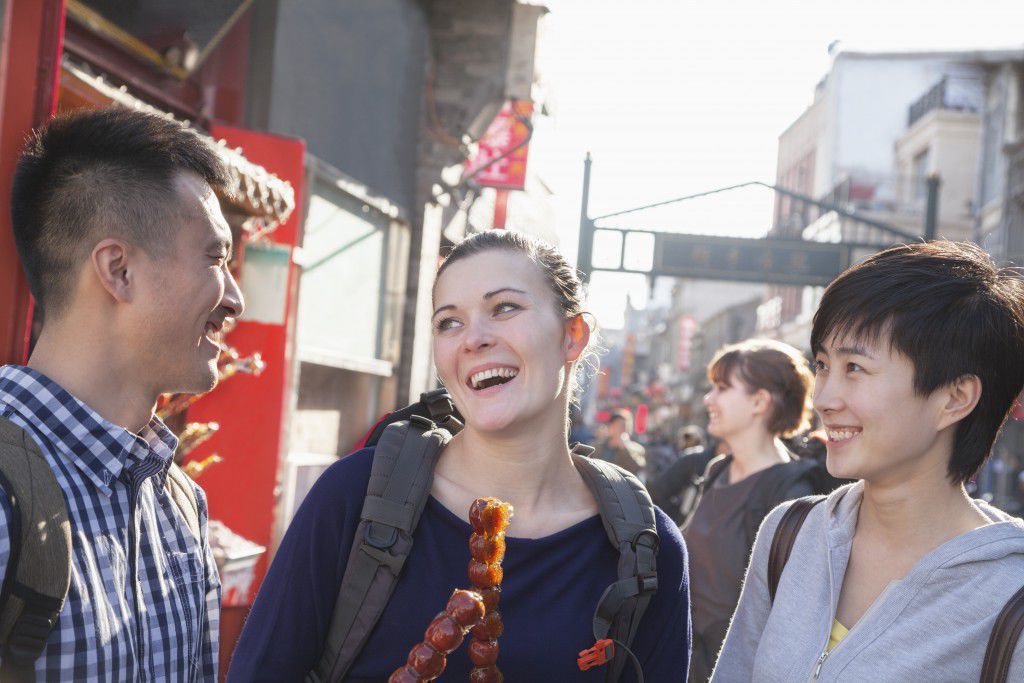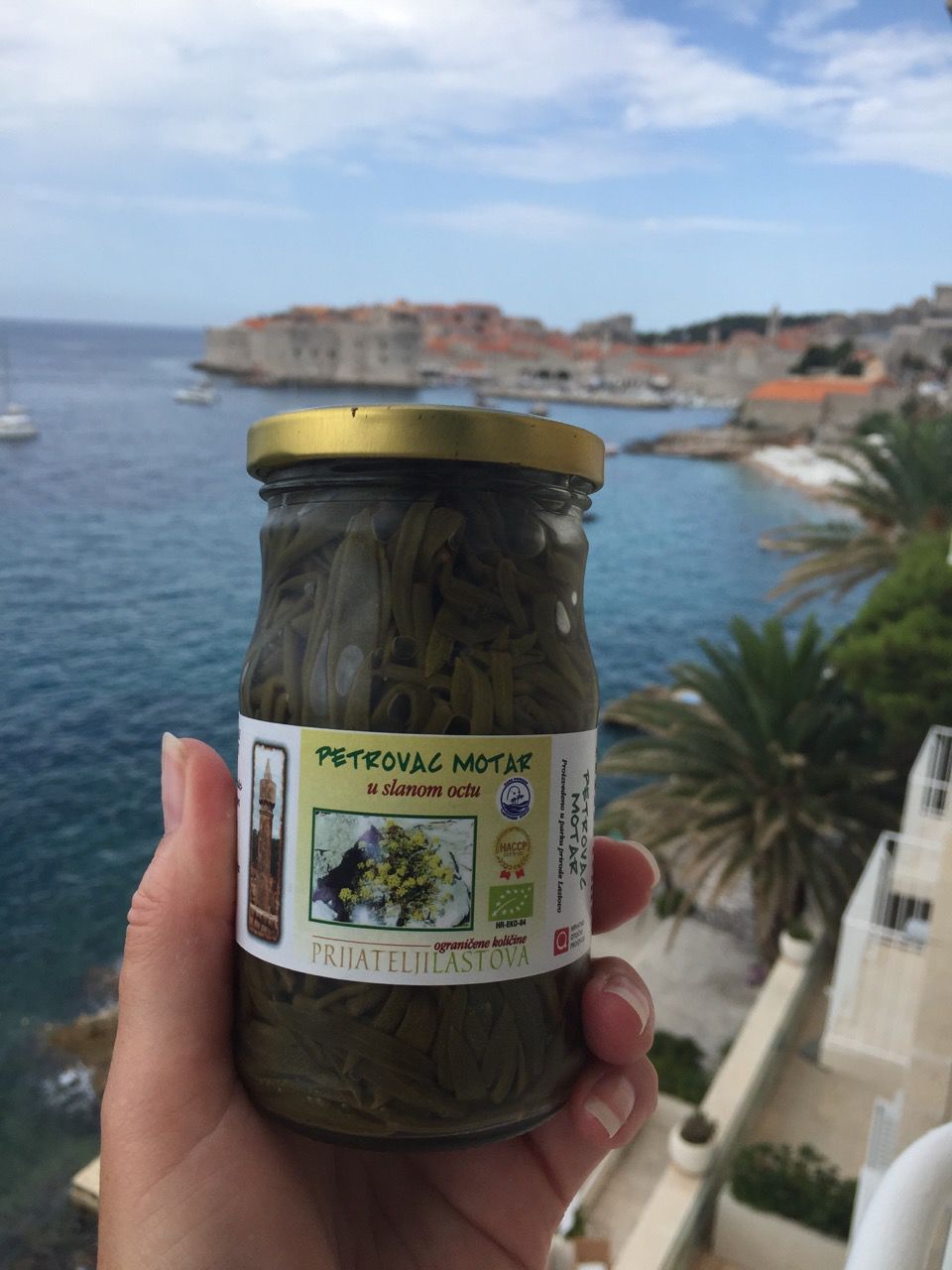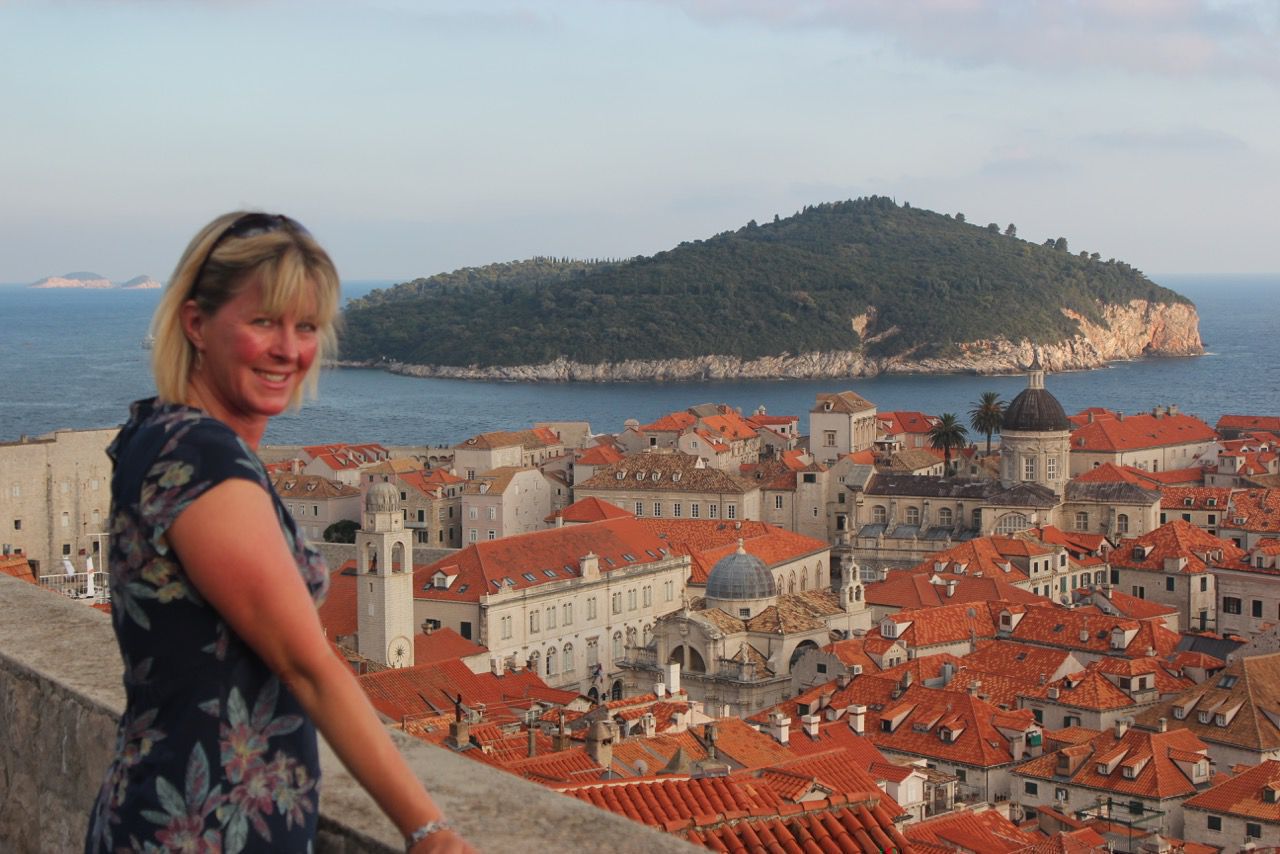10 of the strangest festivals from around the world
Today marks the 70th anniversary of La Tomatina, the famous tomato-throwing festival in Buñol, Spain. La Tomatina began in 1945 but didn’t become an official event until twelve years later. Today, about 30,000 people attend the festival, which begins at around 11am on the last Wednesday of August. Traditionally, the tomato fight can only begin when someone has successfully climbed a greasy pole to retrieve the ham that’s been placed at the top.
We love the idea of La Tomatina, because its only goal is for everyone to have a good time. So we had a look at some of the other unusual events that take place around the world each year; here are a few of our favourites. Please feel free to add your own in the comments!
Moose Dropping Festival, Alaska
This festival ended in 2009, sadly, because it got too big for the town of Talkeetna. But it sounds amazing – essentially it involved numbered moose droppings being dropped from a crane onto targets in the town car park; those that landed closest to the centre of a target won prizes for anyone holding a matching ticket.
Wife Carrying Championships, Finland
Nobody seems quite sure how this bizarre festival originated, although it’s believed to have roots in the 19th century practice of wife-stealing. Competitors carry their wife (or sometimes someone else’s wife) across an obstacle course of over 250 metres, with penalties if they drop her, which seems only fair. The races are run by two teams at once, and the winner is the competitor who completes the course in the quickest time – they get to celebrate with their wife’s weight in beer.
Songkran, Thailand
The Songkran festival is a celebration of the Thai New Year in April, and it’s basically a big water fight. People carry water guns and throw buckets of water over each other, along with white talcum powder. The throwing of water is believed to bring good luck and prosperity for the coming year. But watch out if you’re a tourist, as apparently visitors are a particular target for over-excited locals…
Gulal Throwing Festival, India
The Gulal Throwing Festival takes place each March as part of Holi, which is also known as the festival of colours. And it’s easy to see why – the event involves throwing coloured powder (gulal) and water over each other, so everyone ends up covered in a rainbow of colours. As with Songkran, it’s perfectly acceptable to throw gulal at strangers – the event is all very good-humoured and looks like a lot of fun, if incredibly messy.
World Custard Pie Championships, UK
We didn’t even know this existed, but apparently the World Custard Pie Championships take place every June in Coxheath, Kent. Competing in teams of four, participants try to hit their opponents with custard pies, which they’re only allowed to throw with their left hand. They score one point if they hit an arm, three for the chest and six for a pie in the face. The competition, which began in 1967 as a way to raise funds for the village hall, now attracts teams from across the globe, and was won in 2015 by a team from Japan.
Golden Shears, New Zealand
Every March, competitors come together for the world’s biggest sheep shearing event. Founded in Masterton, New Zealand, in the 1960s, the Golden Shears takes place over three days and includes competitions for all levels in shearing and woolhandling. Sheep shearing requires skill, precision and strength, which makes it an unlikely but no less impressive sporting event.
Boryeong Mud Festival, South Korea
This July festival is essentially a celebration of mud, and in particular its cosmetic benefits. Between events like mud wrestling and mud sliding, you can also enjoy mud massages and the World Mud Skincare Exhibition. According to the website, if you don’t have any mud on your body, you get put in ‘prison’ until you do. In addition, visitors can enjoy the beautiful beach setting of Daechon, and there are games and fireworks as part of the festival too.
Tunarama, Australia
Each January, residents of Port Lincoln, Australia, celebrate the town’s biggest industry – tuna. The free festival includes tuna-themed parades and activities for the whole family. Since 1979, though, the highlight has been the World Championship Tuna Toss, which – as you might expect – involves throwing a tuna as far as you can. This year, the winners were husband and wife Matt and Shanell Staunton from Port Lincoln, who won the men’s and women’s individual events with throws of 24m and 11m respectively.
Hadaka Matsuri (Naked Festival), Japan
One just for the men, which features thousands of nearly-naked participants in a crazy night-time dash across Okayama in Japan. The idea is to catch a pair of sacred sticks (shingi) that have been thrown into the crowd by a priest. It can get a little frantic as the men fight to be first to get hold of the shingi, and competitors are asked to include a slip of paper tucked into their loincloth bearing their name, blood type and emergency contact number, just in case.
Harbin Ice Festival, China
The Harbin Ice Festival takes place in Heilongjiang, in the north-east of China every January, and looks really quite stunning. Participants build life-size buildings and sculptures out of snow and ice, which are then lit up in different colours to create a beautiful ice city. In previous years, the art work has included everything from a fully functional slide to a model of the Sphinx. The festival lasts for a month, but the sculptures can stay up longer, if weather permits.
Have you been to any of these festivals? We’d love to hear about your experience!
A couple of days in Berlin
After volunteering in a hostel in Riga for six weeks, I decided to take the long way home via a series of overnight buses. With everyone raving about how beautiful a city Berlin is, I decided to make it my next stop on my journey home.
It is easy to see why people like it so much.
I stayed in a huge hostel in the Turmstrasse area and this seemed like a really good location to stop in. Just twenty minutes away was the Victory Column, or Siegessäule, which overlooks a large portion of the city. A little further was Potsdamer Platz; the centre is all commercial with cafes and restaurants as far as the eye can see and business reaching high up into the sky from a series of highly polished skyscrapers. But the surrounding area has a lot of history and culture to offer too. Personally the Topography Of Terror, Holocaust Memorial, Friedrichstrasse and Reichstag were the things that grabbed my attention the most. An early evening stroll in the local neighbourhood turned into a several hour stint that saw me leave my hostel, walk the length of Turmstrasse, past the Victory Column, down to the Holocaust Memorial and back on my first night.
There is no one ‘centre’ to Berlin, but it seems most tourists and locals end up at Alexanderplatz. Walking out of the station the first thing you see is the iconic tower that overlooks a pedestrianised area. Walking behind this and into a little blissful shade after a journey on an overheated train was very refreshing. There is a lot to see from here, and I personally headed over towards the galleries and sat under the pillars looking out over the river for a while.
The Zoological Gardens are definitely worth a visit, and if you like zoos and aquariums then it is a must. There’s a very cute windmill of sorts that sits along a section of Budapester Strasse which is worth stopping at to admire.
The Brandenburg Gate was such an impressive sight first hand, you can really understand the sense of power there and the thought of those streets being lined with people waiting to see a glimpse of their leader is both disturbing and breathtaking.
The area around Nordbahnhof was one of my favourite places, full of gardens, interesting architecture, and of course the Berlin Wall Memorial.
The main station, Hauptbahnhof, was also worth looking round, whether you like trains or not. There are so many levels, platforms, different types of train, shops, places to eat and drink, you could spend hours within this huge complex and not get bored.
Of course, one of the best things about Berlin, from my perspective at least, is the cake. Much like Greggs back home in the UK, there is a bäckerei (bakery) wherever you turn, and such a choice of sweet and savoury treats it can be a little overwhelming.
I spent the best part of two days in Berlin and I have to say, it isn’t enough. I could have happily stayed another week and I am still not sure if that would have been enough to have seen everything that I wanted to. A return trip is definitely in order!
Kelly
Planning a trip to Berlin? Remember to learn a little German before you leave with uTalk – or try our free Talk Now demo.
Language of the week: Italian
Buongiorno!
Italian is our language of the week, in celebration of an annual tradition, Il Palio, which dates back to the 12th century and is held on the 16th of August.
 This is a horse race unlike any other, and is all over in 90 seconds. It’s held in the beautiful city of Siena, where the 17 districts compete against each other for the glory. Amazingly a district can still win if the horse loses their jockey during the race, as long as they’re over the finish line first (this has actually happened 23 times since records began). If you have a chance to visit Siena while the Palio is on, you should go – the main square is filled with flags from each district and there is an incredible atmosphere throughout the whole town.
This is a horse race unlike any other, and is all over in 90 seconds. It’s held in the beautiful city of Siena, where the 17 districts compete against each other for the glory. Amazingly a district can still win if the horse loses their jockey during the race, as long as they’re over the finish line first (this has actually happened 23 times since records began). If you have a chance to visit Siena while the Palio is on, you should go – the main square is filled with flags from each district and there is an incredible atmosphere throughout the whole town.
If you want to see just how much the Palio is celebrated in Siena have a look at this…
Here are some of the best things we’ve discovered this week about Italian:
- One of the longest words in Italian is ‘precipitevolissimevolmente’ which means ‘extremely quickly’.
- This Italian tongue twister: ‘Trentatré Trentini entrarono a Trento, tutti e trentatré trotterellando’… which means ‘thirty three Trentonians came into Trento, all thirty three trotting.’
- The word ‘Gelato’ means Italian style ice cream (different to normal ice cream for a number of reasons; firstly it is made with a higher proportion of milk to cream, secondly it has a slower churning process and finally it is served at a slightly warmer temperature than ice cream). Gelato is potentially one of the most important words to know in Italian, as the ice cream cone is an Italian invention and Italy is famous for its Gelato. There’s even an ice cream university in Bologna (Carpigiani Gelato University).
- Italian is a Romance language, meaning it has a Latin origin. Gesture could also be considered important to the Italian language, as messages are often conveyed using hands and facial expressions. When in Italy, you’ll probably hear people saying ‘Ciao Bella!’ to each other as a friendly greeting – but if you don’t want to be too familiar, you may wish to stick to ‘Buongiorno’ (good day) the first time you meet someone.
- The Italian alphabet has twenty-one letters in it. It does not include the letters J, K, W, X and Y; these letters can only be found in foreign words that are common in everyday Italian writing.
- To wish someone good luck in Italian, you should say, ‘In bocca al lupo!’, which translates literally as ‘In the mouth of the wolf’. The correct response to this expression is, ‘Crepi il lupo!’, which means ‘May the wolf die!’
Do you have a favourite Italian word or phrase? We would love to hear from you, so feel free to comment below, tweet us @EuroTalk or write to us on Facebook! And if you’d like to learn some Italian, why not try our free demo, or download our uTalk app to get started.
Alex
Breaking the ice: overcoming language nerves
So apparently a quarter of Brits are nervous about speaking another language when they’re abroad, and 40% of us are embarrassed by our language skills.
These conclusions come from a study by the British Council, which surveyed 2,000 British adults. While 67% of respondents believed it’s important to learn a few words of the local language before a trip, it seems not many of us are putting that into practice when we actually get there.
What if?
There are a number of very legitimate reasons for this fear:
‘What if I get it wrong and everyone laughs at me?’
‘What if I say my bit perfectly, but then don’t understand the response?’
‘What if they just don’t understand what I’m trying to say?’
‘What if I open my mouth and my mind goes blank?’
We all hate the idea of making a fool of ourselves, and it doesn’t help that the Internet is full of stories about people who said ’embarazada’ (pregnant) when they meant to say ’embarrassed’. (Probably more embarrassing than the thing you were embarrassed about in the first place, ironically.) But how many of those people would make the same mistake again? I’m guessing zero.
It sounds like a cliché, but sometimes making a mistake really is the best way to learn. And in my experience, even if you do get things wrong, and even if people laugh, it won’t be mean laughter – and they’ll probably go out of their way to explain where you went wrong, so you know for next time.
Most likely, whoever you’re speaking to will probably be pleasantly surprised that you gave it a try in the first place; in most countries, not much is expected of British or American visitors, so any time we make the effort, it’s appreciated. (Just look at the response to Mark Zuckerberg speaking Mandarin – even though he was very hesitant, and made lots of mistakes, the audience loved it.)
What’s the point?
But at least feeling anxiety over speaking another language shows an interest in trying, and a desire to get it right; the fear of making mistakes is what’s holding us back. The far bigger problem is the number of people who believe there’s no point at all in learning another language, because ‘everyone speaks English’, ‘every time I try, people reply to me in English’ and ‘just knowing a few words won’t help’.
It’s true – last year, when I visited Italy, everyone could tell instantly that I was British, and even if I started a conversation in Italian, they would generally reply to me in English. But here’s the thing: though it’s very easy to seize that lifeline and lapse back into English, you don’t have to. I had very little Italian, but I was determined not to give up, even though the opportunity was there – and the waiters and shop staff I was trying to speak to soon caught on and reverted to Italian. Our conversations mostly consisted of one-word sentences, but at least they were Italian words, and we were able to understand each other. And I was pretty proud of myself afterwards – much more than I would have been if I’d had the same conversation in my native language.
 As for everyone speaking English, that’s clearly not true – and it shouldn’t matter anyway. The comments on the BBC article about the British Council study show that we expect those who visit the UK to speak English – so why should it be any different when we travel to another country? Even if you don’t need to learn a language, does that mean you shouldn’t?
As for everyone speaking English, that’s clearly not true – and it shouldn’t matter anyway. The comments on the BBC article about the British Council study show that we expect those who visit the UK to speak English – so why should it be any different when we travel to another country? Even if you don’t need to learn a language, does that mean you shouldn’t?
And finally, it’s true that knowing a few words wouldn’t help you if you had to go and close a business deal in French, or teach maths in China. But if you’re just going on holiday for a week, the chances are that as long as you’re able to check in to your hotel, order a meal and buy a bus ticket, you’re probably covered – though of course it will depend where you’re travelling to.
This, of course, is the whole idea that uTalk is built on. Because sometimes, just being able to say hello in another language is enough to make someone smile. And why wouldn’t we want to do that?
So let’s be bold, and show off our language skills. And let’s see if we can bring those percentages down in time for the next study.
Liz







